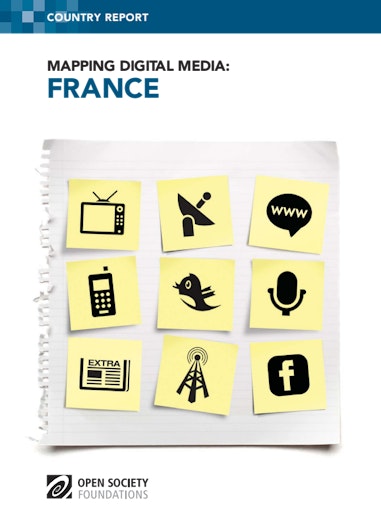The Mapping Digital Media project examines the global opportunities and risks created by the transition from traditional to digital media. Covering 60 countries, the project examines how these changes affect the core democratic service that any media system should provide: news about political, economic, and social affairs.
In France, the digital switch-over for television proceeded in a relatively timely and uncontested fashion, with appropriate support for disadvantaged households and an effective public awareness campaign. Digital licensing has also been generally perceived as transparent and fair. Media policy and regulation have also proved largely responsive and adequate to the challenges of digitization.
However, the new government faces a plethora of loose ends in digital media policy. It remains to be seen whether public subsidies aimed at regenerating good-quality journalism in both print and online sectors have been effective; there is a significant shortfall in the funding of public service media as a result of their reduced advertising quotas, and the European Commission’s rejection of a planned levy on telecoms; political support for traditional media in their plight against online giants such as Google may backfire if the latter carries out its threat to exclude their content; and public trust in the media is unlikely to be restored so long as entrenched links between political and media elites are maintained.
Download
-
Mapping Digital Media: France (564.57 Kb pdf file)
Download the complete 113-page report.
-
Cartographie des médias numériques : La France (568.94 Kb pdf file)
Download the complete 116-page report in French.
Read more
Voices
What Does Independent Journalism Look Like in the Digital Age?

Journalists and media organizations can find themselves repressed because of inadequate or deliberately repressive policy. Mapping Digital Media examines the situation in 56 countries.
Voices
Does Digital Media Mean Better Media?
From Montenegro to Nicaragua to China to Egypt, has digital media improved access to good-quality journalism?
Voices
Early Days for Digital Media in Morocco
Digital media in Morocco continues to advance. With 105 percent mobile phone penetration in the country and a growing appetite for online news more change is on the way.
